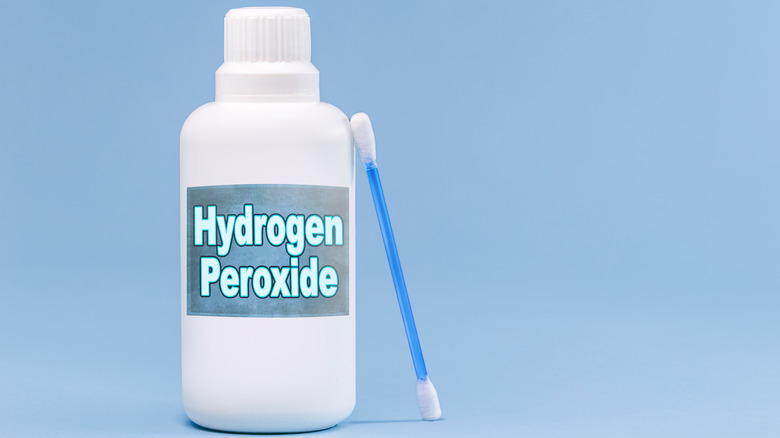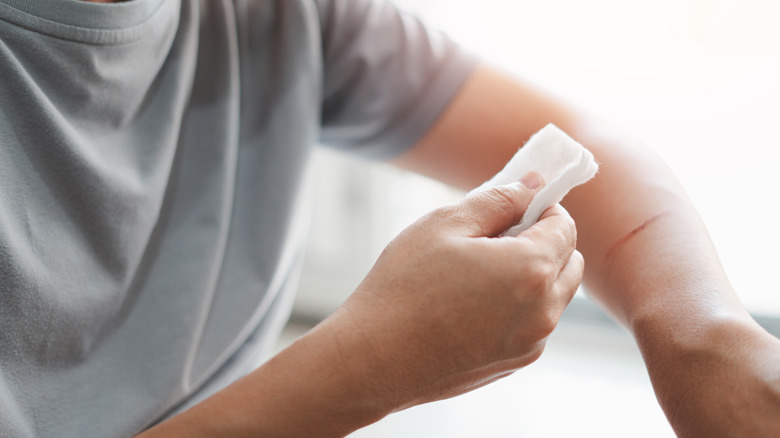Why You Should Think Twice Before Using Hydrogen Peroxide On A Wound
When it comes to cleaning out a cut or a scrape, there are a number of old wives' tales still circulating. One of them is to use hydrogen peroxide on a fresh wound. However, while doing so does kill harmful bacteria, it can also damage the surrounding healthy tissue, according to the Cleveland Clinic. Newer tissue is much more sensitive than older tissue, so it is particularly susceptible to damage from strong antiseptics like hydrogen peroxide, rubbing alcohol, and iodine. Applying these substances can actually delay healing time, so they are generally best avoided (via WebMD).
Instead, experts recommend relying on a more basic approach to cleaning a cut or scrape. "When it comes to cleaning superficial wounds, good old-fashioned soap and water is the way to go," says Evan Minior, a certified nurse practitioner, in a post for the Cleveland Clinic. Still, it's not a bad idea to keep antiseptics like hydrogen peroxide and rubbing alcohol in an emergency kit in case you don't have access to clean water (via Consumer Reports).
How to properly clean a wound
It's important to clean cuts and scrapes to prevent an infection. The first step is to wash your hands thoroughly to remove any harmful germs (via Mayo Clinic). While minor wounds typically stop bleeding on their own, if necessary you can apply pressure with a clean cloth until the bleeding stops. To clean the wound, run it under tap water and wash around it with a mild soap. If there is debris in the cut like dirt or glass, use sanitized tweezers to remove it. If you can't remove all the debris, see your doctor.
Next, apply petroleum jelly or an over-the-counter antibiotic cream or ointment. This will help keep the wound moist and also prevent scarring. Use a bandage or gauze with medical tape to cover the wound. Change the dressing daily or wherever it gets wet. If the cut or scrape is very minor, it can be left uncovered. Such wounds should typically heal just fine on their own without any complications. But if you notice any signs of infection like swelling, redness, warmth to the touch, increasing pain, or drainage, call your doctor.


